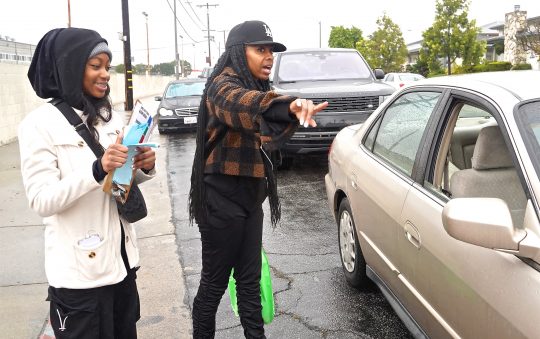Police say the ruling makes it hard to fight sex trafficking, drug dealing.

The U.S. Supreme court recently struck down a Los Angeles ordinance that allowed the police to examine guest registries at hotels and motels anytime during the day or night. The 5-4 decision upheld a U.S. 9th Circuit Court of Appeals ruling that had set aside the ordinance on grounds that it permitted unreasonable searches. The Los Angeles City Attorney’s office had maintained that some hotels and motels have become havens of prostitution, sex trafficking and drug dealing and that police need the authority to conduct spot checks, the Los Angeles Times reported.
A group of motel owners went to court, alleging the spot checks late at night were intrusive and disruptive for families running the motels. The group won a broad ruling from the 9th Circuit Court that held the ordinance unconstitutional. Justice Sonia Sotomayor said motel owners deserve the right to go to a judge and to object before a search takes place. Justices Anthony M. Kennedy, Ruth Bader Ginsburg, Stephen G. Breyer and Elena Kagan also cited with the plaintiffs. They said police may obtain a search warrant if they suspect criminal activity at a motel or hotel.
Justice Antonin Scalia said police should not have to “jump through procedural hoops” to get a warrant. He said “the costs of this always-get-a-warrant alternative would be prohibitive for a police force in one of America’s largest cities, juggling numerous law-enforcement priorities and confronting more than 2,000 motels within its jurisdiction.”
The city had already stopped enforcing its hotel registry inspection law last February, Cmdr. Andrew Smith, an LAPD spokesman, told City News Service. The ability to inspect hotel registries without a warrant – which allowed officers to find out if a known pimp has registered a room — was one of the tools used by the LAPD to “combat human trafficking, prostitution and sometimes narcotic sales that occur in some of these generally smaller hotels throughout the city,” Smith said.
“We’ll just have to continue to work to fight human trafficking using other tools we have available,” such as cultivating informants and observing whether there are “inordinately large numbers of guests that come in and out” of hotel rooms, he said.
LAPD officers now “can ask and can get a written consent, but they can’t force” hotel owners to show them their hotel registries, Smith added.






